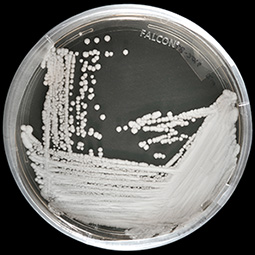New drug formulation could treat Candida infections
With antimicrobial resistance (AMR) increasing around the world, new research led by the University of Bristol has shown a new drug formulation could possibly be used in antifungal treatments against Candida infections.
Candida albicans, a well-known yeast usually seen in the mouth, skin, gut and vagina, is reported to form biofilms and cause mild to life threatening infections. Fluconazole, an antifungal drug widely used to treat Candida infections is completely ineffective in treating Candida biofilms and new drugs are needed to treat them. However, unlike antibiotics, developing antifungal drugs is very challenging because yeast cells are structurally similar to human cells, as a result, there is a greater chance of unwanted side effects with new antifungal drugs. A better alternative would be to improve the efficiency of currently approved antifungal drugs such as fluconazole but with minimal side effects.
Recent studies have shown that microorganisms can communicate with each other using various chemical signals. Some microorganisms use these signals to control other competing microorganisms and these signals could potentially be used as antimicrobial drugs.
AMR NEWS
Every two weeks in your inbox
Because there should be one newsletter that brings together all One Health news related to antimicrobial resistance: AMR NEWS!





